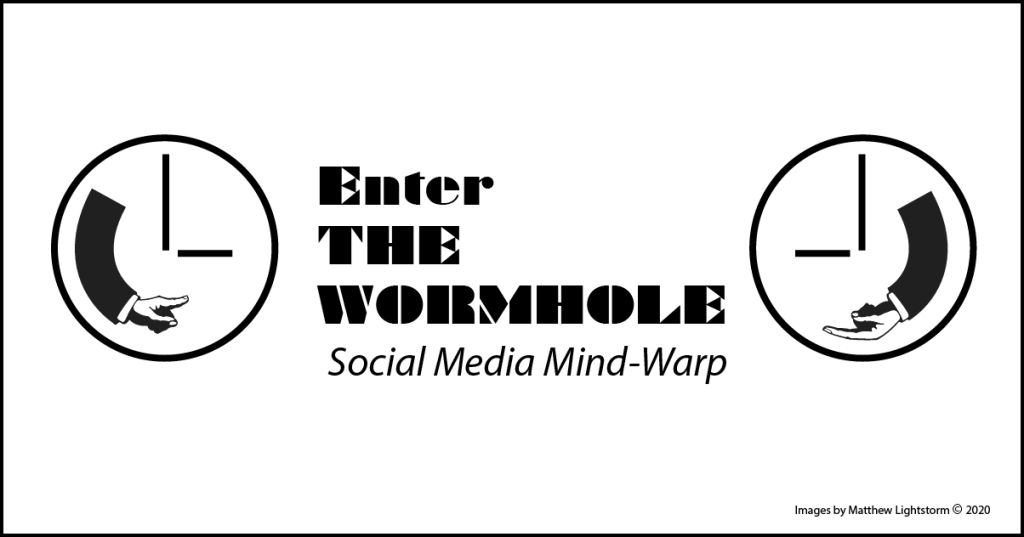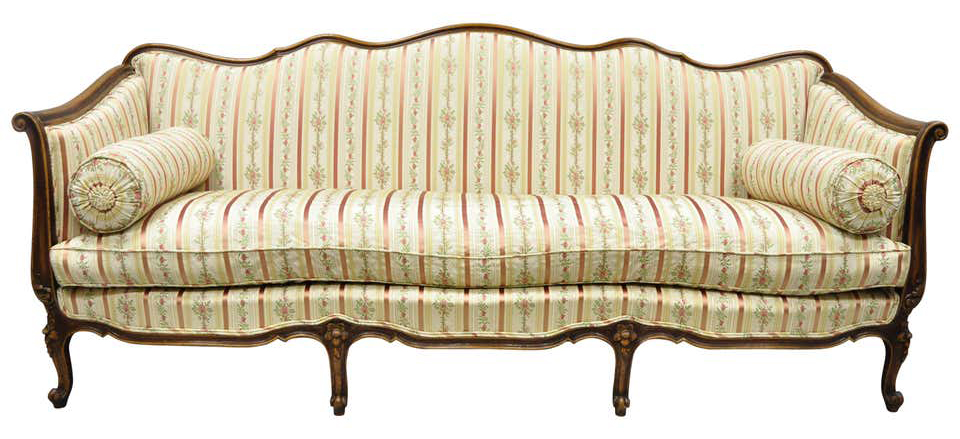
An interesting concept comes to mind when I think of social media and physics. Einstein theorized that wormholes are two points in time that can either shorten travel or expand travel. The two points can be as close as a few meters or as distant as light years away. While the theory is normally reserved to space travel, in travelling through two points of time; I believe I experienced a wormhole in real life—many times.
I think many others may have experienced the same phenomena that I’ve experienced. I never thought to talk about it, because it’s one of those things that you realize is happening unobtrusively and is not easy to explain.
The first time I experienced this phenomenon was when I was 21 years old. I was driving up north from Toronto to Sauble beach. Normally, the trip would take no less than 2.5 hours. I’m not sure what it was about the drive that day, I just remember it was May and it was about an hour before sunset. The interior of the modest car I was driving was shaped like the inside of a spaceship cockpit, but in no way did this have any relevance to the wormhole theory. The CD player was set to autoplay. The album was a compilation of the best classical music, including Vivaldi, Bach, Mozart, Chopin, and Beethoven— to name a few. As I began my journey, I got comfortable, set the cruise control and let the calm music play in the background as I enjoyed driving through the country roads. The CD might have played 4 times over. I am not sure how many times it must have played over. Surely, when I arrived, the time shown on my clock was right where it should have been; about 2.5 hours later. There was something mysterious that happened and I knew without any doubt that those 2.5 hours of time travel did not equate to 2.5 hours. That time and space I travelled through were definitely shortened, but not in a way that was measurable. I felt the time that transpired was in fact closer to 1 hour.
So why did the duration of my time spent in the car feel like 1 hour? What made my perception of time feel shorter? While it sounds utterly absurd to think that this is in anyway related to space travel, there are a few merits to this theory. In a metaphorical sense, can we not say that we travel though time when we get from point A to point B in a short amount of time? Why do 10 minutes in an unpleasant situation seem like an eternity, while 2 hours spent with your best friend might seem like only a few minutes at the moment you have to say goodbye?
Is the mind really aware of what a length of time feels like? What is the feeling of time? Can you touch time? Can you feel time? Can you create time? Can you see time? Can you hear time? Can you interact with time? The answer is no. We accept that time exists because of the constructs of physical space. So our physical space tells us that time is ticking. The sun is setting, so time must be passing by. But if we separate our awareness of our physical space from our awareness of our subconscious mind; we begin to experience time in an entirely different way. The mind’s perception of time is entirely changed when we stop counting and begin engaging with things not from this world.
The wormhole is a metaphor for expansion and contraction of the subconscious mind. When engaged on social media we can sometimes spend 4 hours on something and never realize the amount of time that has passed. Does the subconscious mind not make us aware that time is ticking? Yet when exposed to troubling news on social media, that shakes our very core, we are suddenly aware of every minute detail of that short videoclip. While we watch that short social video clip, all of our collected fears, emotions, beliefs and ideologies flash before our mind’s eye; playing an even shorter internal video relative to the short video clip of awful news. If our internal mind’s eye video could be extracted, what would it unpack for us? Perhaps, we would find a tightly packed suitcase of every subconscious second in our lives.
I am not a psychologist, but my sheer arrogance precedes me. Perhaps our natural defence mechanism warns us that what we are watching is so disturbing, that our subconscious mind expands time to compress all of these thoughts into a short clip. Maybe it does so in order to take immediate action or as in the case with social media; we switch the channel or face more anguish. Conversely, when there are good vibes coming towards us, we engage in a positive way and our mind allows us to flow that information for hours on end, without any special subconscious short clip warnings. I am sure if I was a psychologist I would have used the terms flight or fight response and stress to explain this process. But I am a strong believer that the best new breakthroughs come from those that have no prior exposure to the field. So, coming to terms with what is really happening to us when we enter these wormholes, is understanding that we are being worm-holed while using social media.
When the feedback is positive; we enter a positive feedback loop, we begin to engage even more and feel pleasure while doing it repeatedly. On the other hand if the feedback is negative, we begin to feel badly and seek ways to stop the ill feeling. While Freud might be rolling in his grave reading my nonsense, I still stand to gain from leaning on my wormhole psychology theory. I say that because many of the privileged psychology theorists of old, had wild preposterous theories; yet we still in many ways today, have the same prevailing structures in place, allowing for the same lunacy to prevail. Moreover, if good theories are worth exploring then why are they not in the mainstream education? I am not attacking the educational process, but I am questioning why social media is not a greater part of the education process. The power of millions to think about a better model, might offer a better treatment than a handful of intellectuals. Not to mention the industry motivated funding to institutions, which often exclude intelligent non-monetizable solutions.
Social media has the power to change the way we view psychology, in that we may develop a non-traditional branch of psychology like alternative-psychology. The alternative psychology might seek to resolve issues without the use of medicine and cognitive therapies; but rather by looking at our perceptions and feelings in an entirely different way. The wormhole might explain two thirds of the psychological conditions caused by exposure to media. Next time you are on social media, ask yourself if your wormhole is contracting or expanding? If it is contracting, you are gaining perceived time; your subconscious mind is allowing those 4 hours on your favourite topic to seem like 10 minutes. The mind is telling you to go ahead without any warning, to proceed with confidence, and enjoy. If the wormhole is otherwise expanding, then time is feeling longer than it is and suddenly the trauma sets in. The mind is telling you to stop, do not go any further, and a flash of all your deep relevant subconscious thoughts ensues. Perhaps, one day, psychology problems can be solved by people understanding how the mind works, from non-traditional perspectives. Perhaps, millions of us contributing our human capital potential together, will prove to be the largest experiment to replace previously indoctrinated solutions.
Would you ever watch a film or read a book adaptation of this wormhole story or idea? Perhaps an elaborated story of the wormhole thought expansion and contraction theory related to mind control; or even, a global awareness of the wormhole thinking phenomena, and how it shares a symbiotic relationship with social media?
Have you ever experienced a feeling of a wormhole, and if so, what happened?

Have you been worm-holed? https://bit.ly/3dkO3yM #psychology #wormhole #humancapital #education

Are your friends and family experiencing wormholes in social media?https://bit.ly/3dkO3yM #psychology #wormhole #humancapital #education

